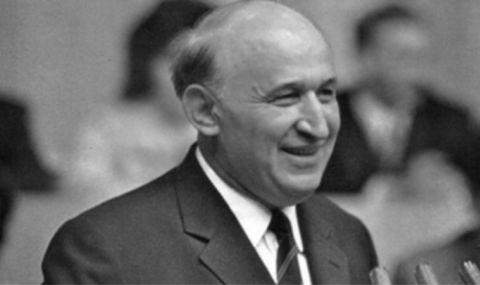34 years ago, November 10 was Friday.
At its meeting, the Central Committee of the BKP in Boyana dismissed Todor Zhivkov from the highest post of general secretary in the party (and in fact in the state), which he held for 35 years.
The date is perceived as the beginning of Bulgaria's transition to democracy and a market economy, although the one-party system of the BKP, which continues to be the only guiding factor in the country, was abolished only the following year, and the first real economic reforms were undertaken 15 the month after the plenum.
The Tenth of November plenum is defined by authorities such as Zhelyu Zhelev as a coup, or as a “constitutional change” of the state leadership, and together with the subsequent events it was also called the “quiet revolution”.
With Mikhail Gorbachev coming to power in the Soviet Union, a process of perestroika began. This also affects the other socialist countries that are members of the Warsaw Pact Organization and the Council for Mutual Economic Assistance. Bulgaria, not without reason considered to be one of the most loyal satellites of the USSR at the time, also announced a course towards the restructuring of the existing socio-political and economic system in the country.
In Bulgaria, Todor Zhivkov states in various statements that the current system fails to meet the needs of the society at that time for change, and a framework for a new social structure is drawn - a democratic beginning of the state. The economic framework also changes from state planning to elements of private economy.
Under Gorbachev and the course he took for the independence of the allies, for the first time since Zhivkov was in charge, differences appeared between him and the Soviet leader.
On November 9, 1989 at a meeting of the Politburo, Todor Zhivkov resigned as general secretary of the BKP after pressure organized by the Soviet embassy, as well as by his closest associates Yordan Yotov, Dobri Djurov, Dimitar Stanishev, as well as by Stanko Todorov, Grisha Filipov and Georgi Atanasov .
The request for resignation was organized by Politburo member Petar Mladenov and candidate member Andrey Lukanov. Some of the members of the Central Committee, such as Milko Balev and Dimitar Stoyanov, were not informed in advance. Zhivkov did not resign from the position of chairman of the State Council of the People's Republic of Bulgaria (the highest position in the country), the proposal for this was made on behalf of the Politburo.
There are two items on the agenda of the November plenary session. The first is Todor Zhivkov's report on the current situation in the country and the need to reorganize the economy “in the direction of the market mechanism, combined with a planned beginning”, and the second is the resignation of the general secretary of the Central Committee of the BKP. Zhivkov delivers the opening speech, after which the Central Committee approves his report.
At the afternoon session of the plenum, the members of the Central Committee accepted the resignation of Zhivkov, without giving him the opportunity for closing remarks, and confirmed Petar Mladenov as General Secretary of the Central Committee of the BKP. The plenum proposes to the National Assembly to release Zhivkov from the post of chairman of the State Council of the People's Republic of Bulgaria.
On November 17, at a meeting of the National Assembly broadcast live on television, Petar Mladenov was elected as the chairman of the State Council. The very next day - November 18, the first free rally organized by the so-called informal organizations, headed by CT “Support” and “Ecoglasnost”, on the square in front of the temple-monument “Saint Alexander Nevsky”.
34 years since November 10, 1989. Bulgaria continues to be divided by hatred. How will we build a modern country if we are divided? Our national slogan is: We love to hate the most...
